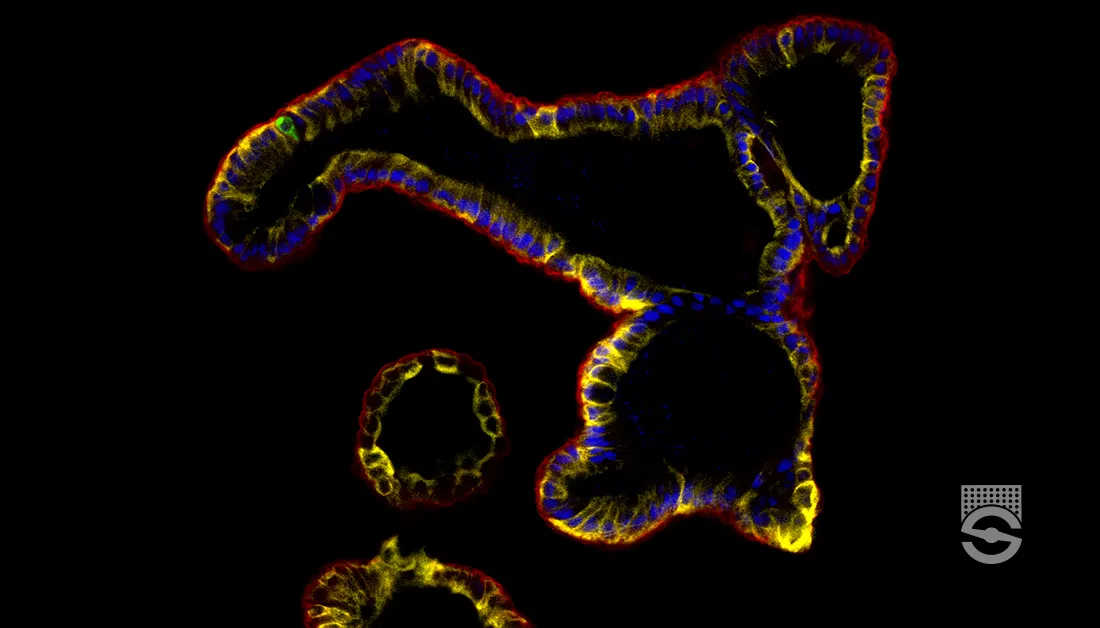Feulgen and Rossenbeck’s Formulation
Solution
| Material | Amount | |
|---|---|---|
| Pararosanilin | 1 | g |
| Distilled water | 200 | mL |
| Sodium bisulphite, 10% aqu. | 10 | mL |
| Hydrochloric acid, 1N | 20 | mL |
| Activated charcoal (powder) | 2 | g |
Preparation
- Heat the distilled water to boiling in an oversized Erlenmeyer flask.
- Take from the heat, and immediately add the dye. Be careful, as it foams.
- Shake well until the dye is dissolved.
- Cool to 50°C then add the hydrochloric acid and mix well.
- Cool to 25°C, and add the sodium bisulfite.
- Mix well.
- Stopper tightly, and store in the dark for one to two days.
- If not water clear, add activated charcoal and shake for about a minute.
- Filter, and store at 0-5°C in a tightly stoppered bottle.
Notes
- According to the Merck Index, commercial sodium bisulphite is made predominantly of sodium metabisulphite, and for most purposes they are interchangeable. Thus, 10 mL of a 10% solution of sodium (or potassium) metabisulphite can be added instead of sodium bisulphite. This formula then becomes identical to that of de Tomasi’s Schiff’s reagent.
- The solution should be colorless or very pale amber. Brown solutions will often stain poorly. Usually these have been made from a batch of basic fuchsin containing too little pararosanilin.
Safety Note
Prior to handling any chemical, consult the Safety Data Sheet (SDS) for proper handling and safety precautions.
References
- Gray, Peter. (1954)
The Microtomist’s Formulary and Guide.
Originally published by: The Blakiston Co.
Republished by: Robert E. Krieger Publishing Co.
Citing:
Feulgen and Rossenbeck, (1924)
Zeitschrift für physikalische Chemie, , v. 135, p. 203
Leipzig.






